With climate change and its effects hitting the headlines almost daily, more and more of us are inspired to make changes to the way we live to reduce our carbon footprint. While we can all take steps to reduce our impact on the planet, it can be hard to know where to start - so why not begin at home?
Here are some simple ideas on how you can start making your home more environmentally friendly, from easy kitchen swaps you can try today to long-term investments around the home.
How to make your home eco friendly with 15 switches
Choose eco-friendly paints
Adding colour to your walls doesn’t mean adding to the planet’s problems. Nowadays there is a wide range of eco-friendly paints on the market to help you decorate with a clean conscience, from milk paint to chalk paint, mineral paint to clay paint.
But what makes a paint eco-friendly? As a rule, eco-paint contains sustainable, non-toxic ingredients and/or is manufactured in ways that are kinder to the environment.
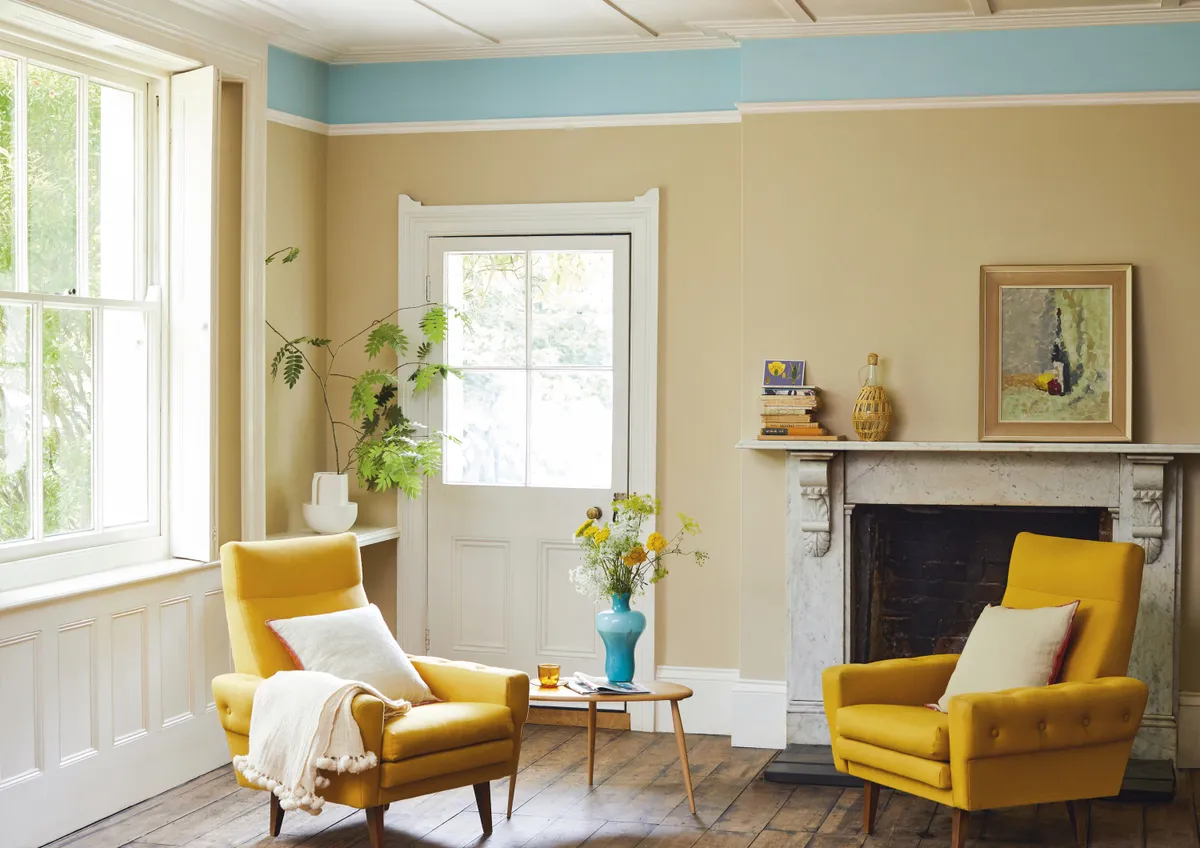
If you’re looking for a good eco-paint, always check the label. Some paints contain seemingly great things like natural oils, but you might then need chemicals like white spirit, rather than water, to clean your paintbrushes. The most sustainable option is to reduce the amount of times you repaint your walls, so keep in mind quality, durability and longevity too. You can find out more and discover some of our favourite planet-friendly paint brands here.
Upcycle old furniture
Upcycling is a sustainable and fun way to kickstart an eco-friendly lifestyle. It breathes new life into old furniture that would otherwise end up in landfill and is a cost-effective and crafty way to update your home décor.
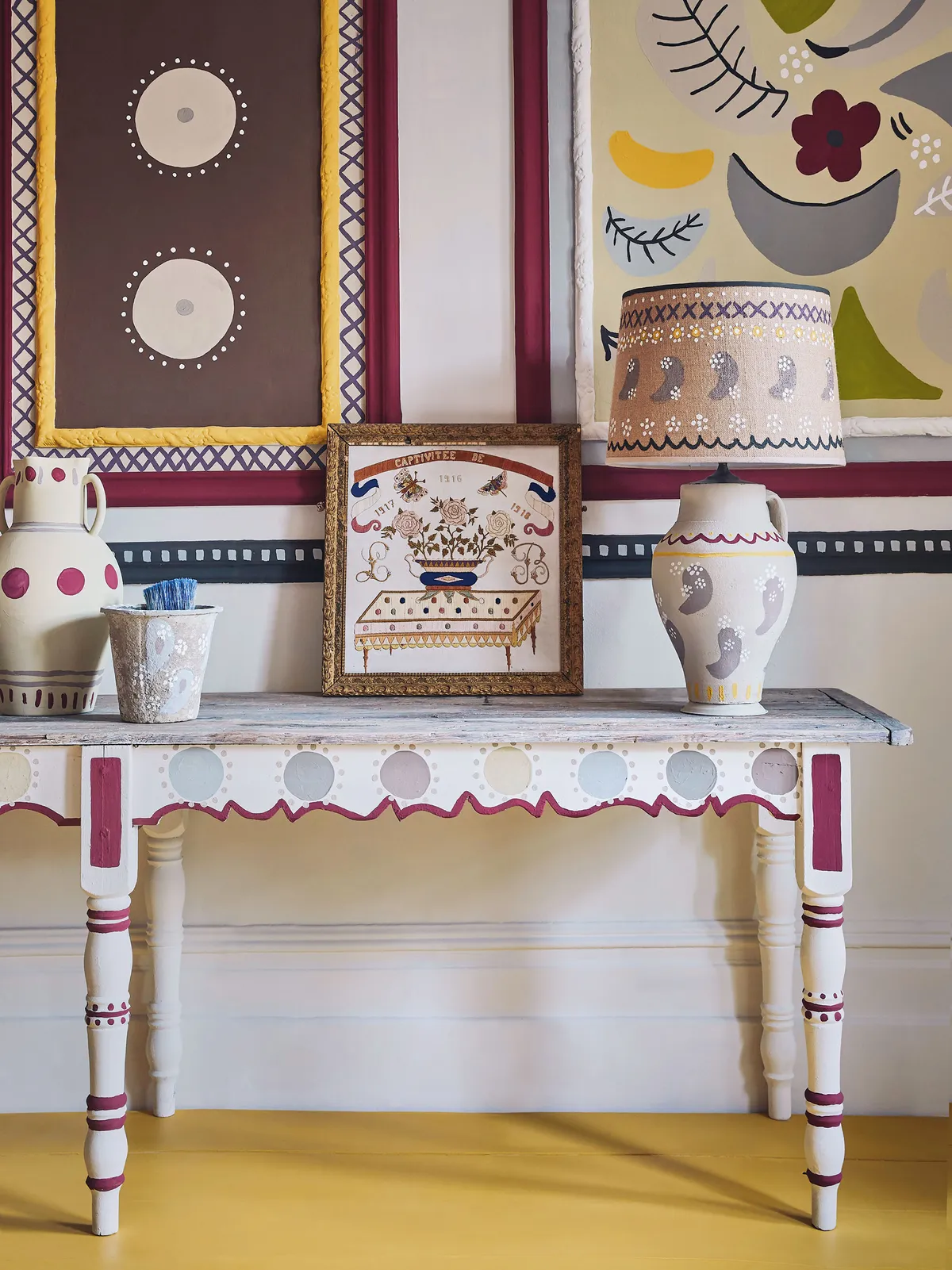
Buy Charleston chalk paint in Rodmell, Tilton and Firle, all £27 per 1L, Annie Sloan
Look for specialist furniture paints, such as Annie Sloan’s chalk paint, which don’t need a primer and are eco-friendly. You can learn how to upcycle a dresser with Annie Sloan chalk paint here.
Switch up your cleaning products
From wiping down worktops to scrubbing the bathroom, we all have a cupboard full of cleaning products for use around the home. However, a number of common household name products include chemicals that have the potential to negatively impact the environment and harm our wildlife.
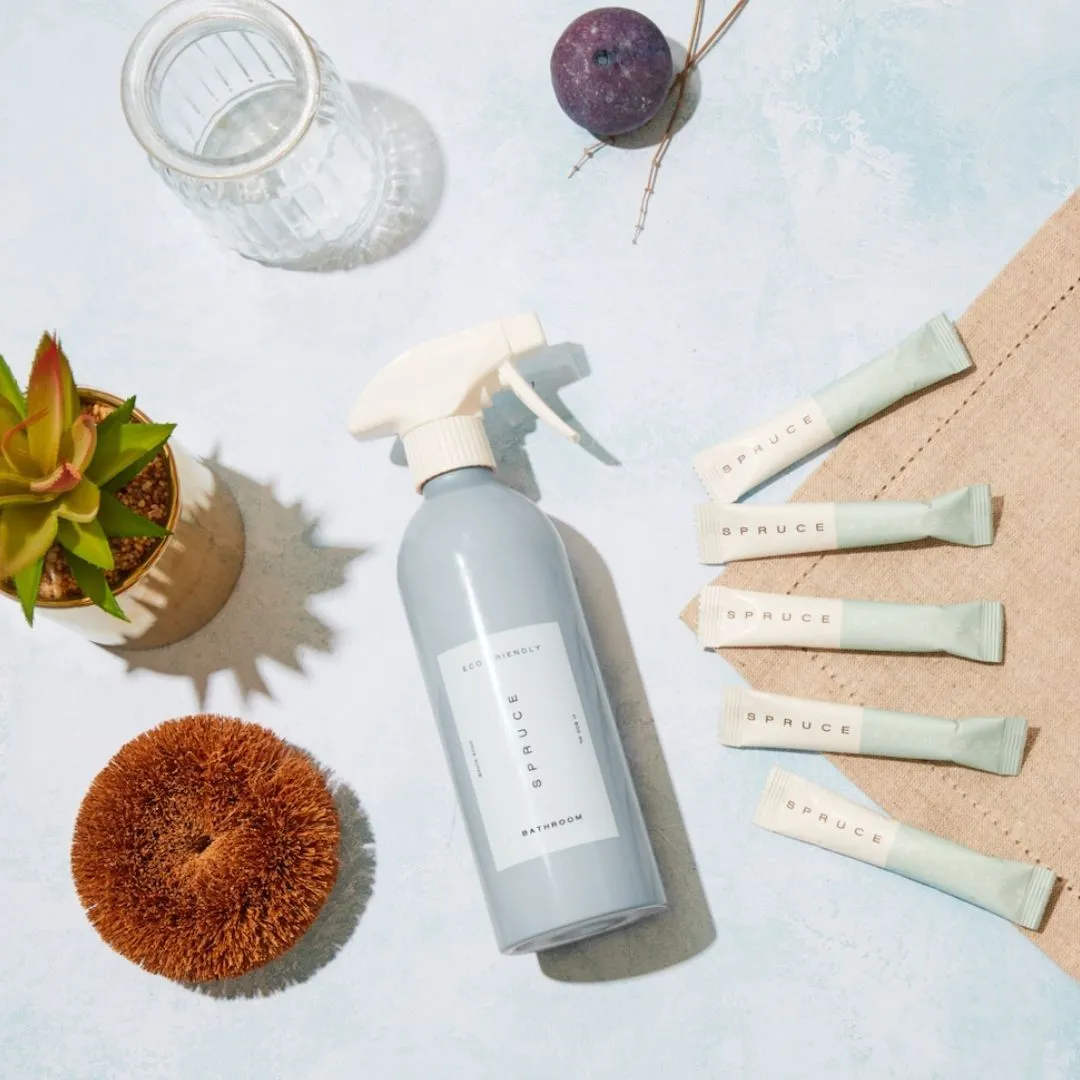
Buy Spruce bathroom starter kit from Amazon, £15
Ingredients like titanium dioxide and optical brighteners can cause pollution in watercourses, with others like benzisothiazolinone and petroleum-derived additives being linked to skin irritation. Keep an eye out for these ingredients and try products that use plant-based and naturally derived ingredients instead. We've put together a round-up of our favourite eco-friendly, refillable cleaners here, tried and tested by us.
Invest in smart home technology
Smart home tech, such as thermostats and hybrid heat pumps, use less oil and gas and make it easier to track and reduce how much energy you use. Although they can seem like a big outlay up front, they quickly pay for themselves as your bills get cheaper.
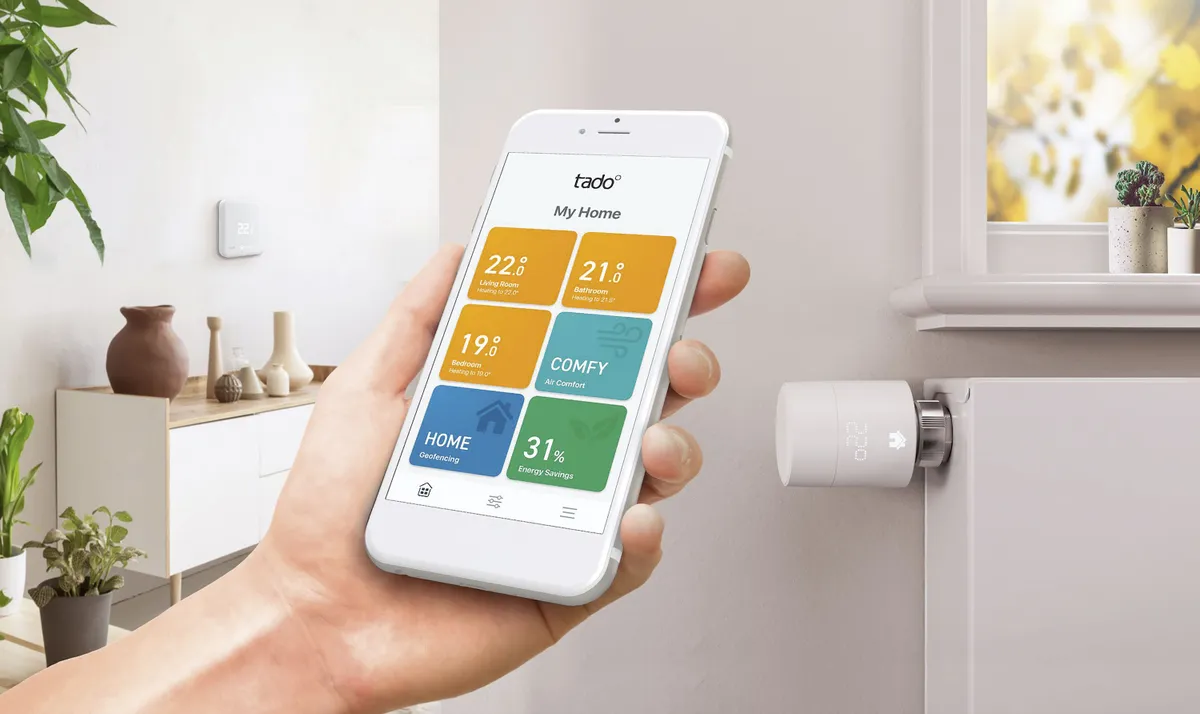
A smart thermostat’s main purpose is to help you control and monitor your energy use, so you want it to be user-friendly, easy to install, and genuinely useful in helping you to keep on top of your energy consumption – hopefully saving you some money in the process. Discover more energy-saving tips here...
For example, the Nest thermostat has features such as Open Therm Technology; this is an advanced algorithm that can modulate your boiler’s heating temperature, allowing your boiler to use less gas to reach the temperature set by the thermostat.
Smart heating controls let you set timings and locations for your heating schedule, which allows you to take advantage of the concept of zonal heating – so instead of heating your entire house, only heat the zones or rooms you are using, when you're using them. This is an effective way to reduce your energy use and make some substantial savings, while still achieving toasty temperatures on chilly days.
Ditch the tumble dryer
Did you know that tumble dryers emit over 400kg of CO2 a year? So make the most of the warmer weather by ditching the tumble dryer and hanging clothes and bedding outside on a washing line instead. Your washing will smell much fresher, and it will reduce the risk of snags and shrinking that often result from using a tumble dryer. Check out our pick of the best rotary washing lines on the market.
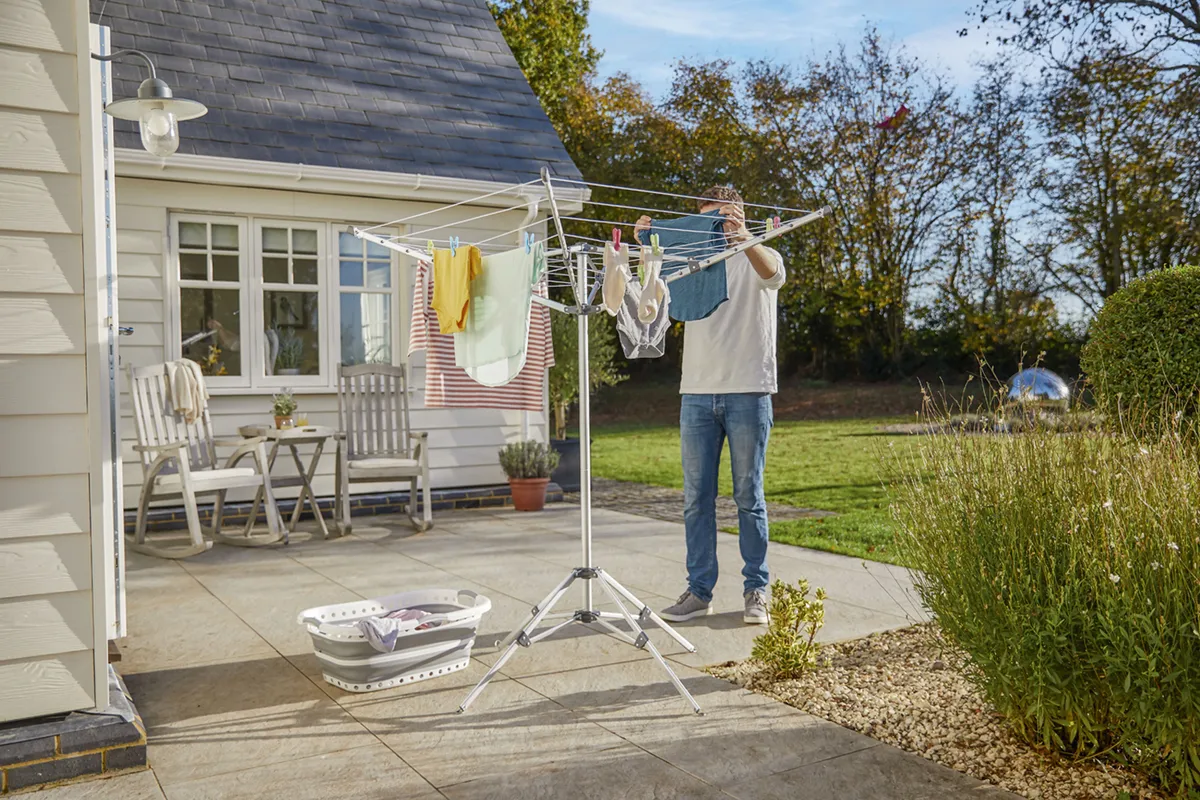
If the weather is wet, switch to an indoor drying rack instead. If you need to use a tumble dryer, you can reduce the amount of energy it uses by investing in an energy-efficient tumble dryers on the market.
Choose recycled and recyclable materials
With advances in technology, homeware manufacturers are increasingly using materials that have been, or can be, recycled in their products. From metal to wood, glass to textiles, there’s a plethora of choice out there for eco-conscious shoppers. One of the most exciting innovations is the use of plastic bottles that are recycled into yarn, which is then transformed into soft and snuggly rugs, sofas and furnishing fabrics.
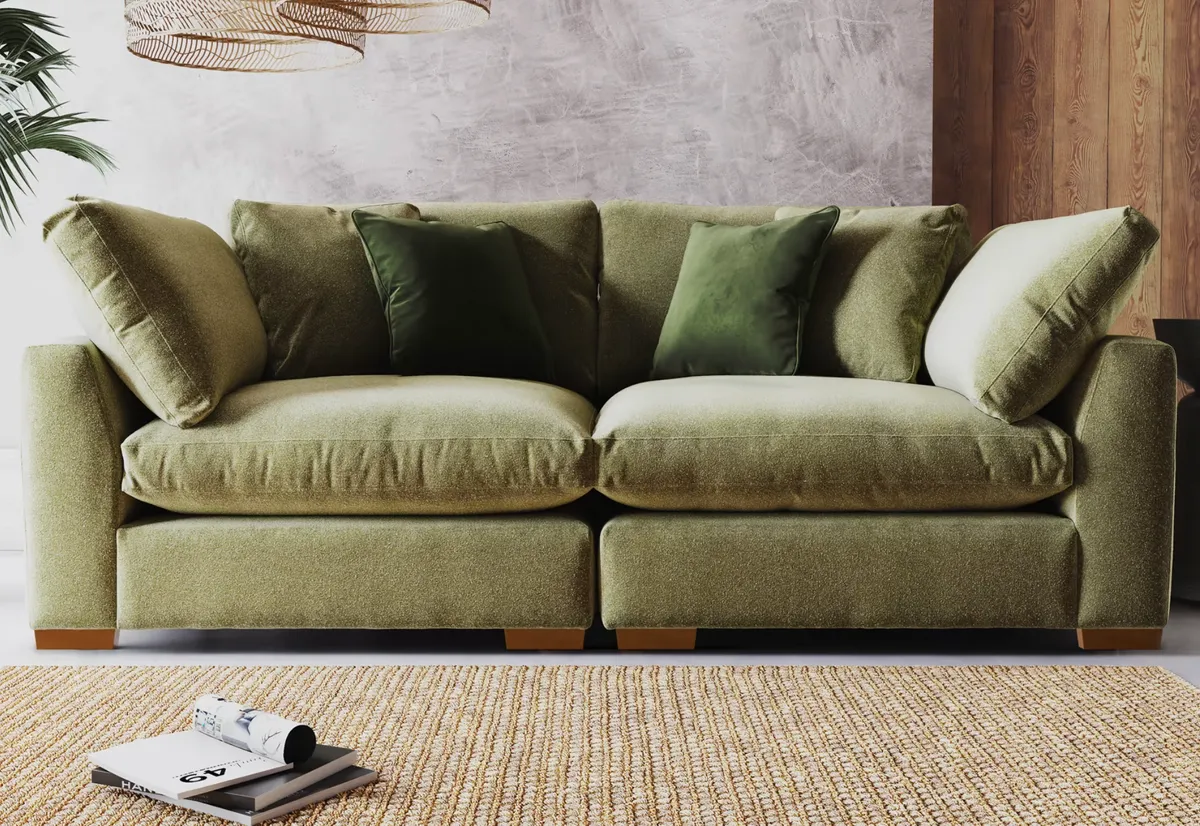
Sofology has recently launched a range of sofas with seat cushions made from Quallofil Blue, an innovative fibre manufactured using recycled plastic materials – also known as Social Plastic – sourced from Plastic Bank. This social enterprise is recognised as one of the leading solutions to stop ocean plastic while providing those living in poverty with access to stable income, education and resources.
Cut food waste
A whopping 14 per cent of all food purchased in the UK ends up in the bin. What we now know is that food taken to landfill releases huge amounts of greenhouse gasses as it isn’t exposed to enough oxygen to naturally biodegrade, so instead it decays. A smart way to cut food waste is by planning your meals for the week ahead and buying only what you need.
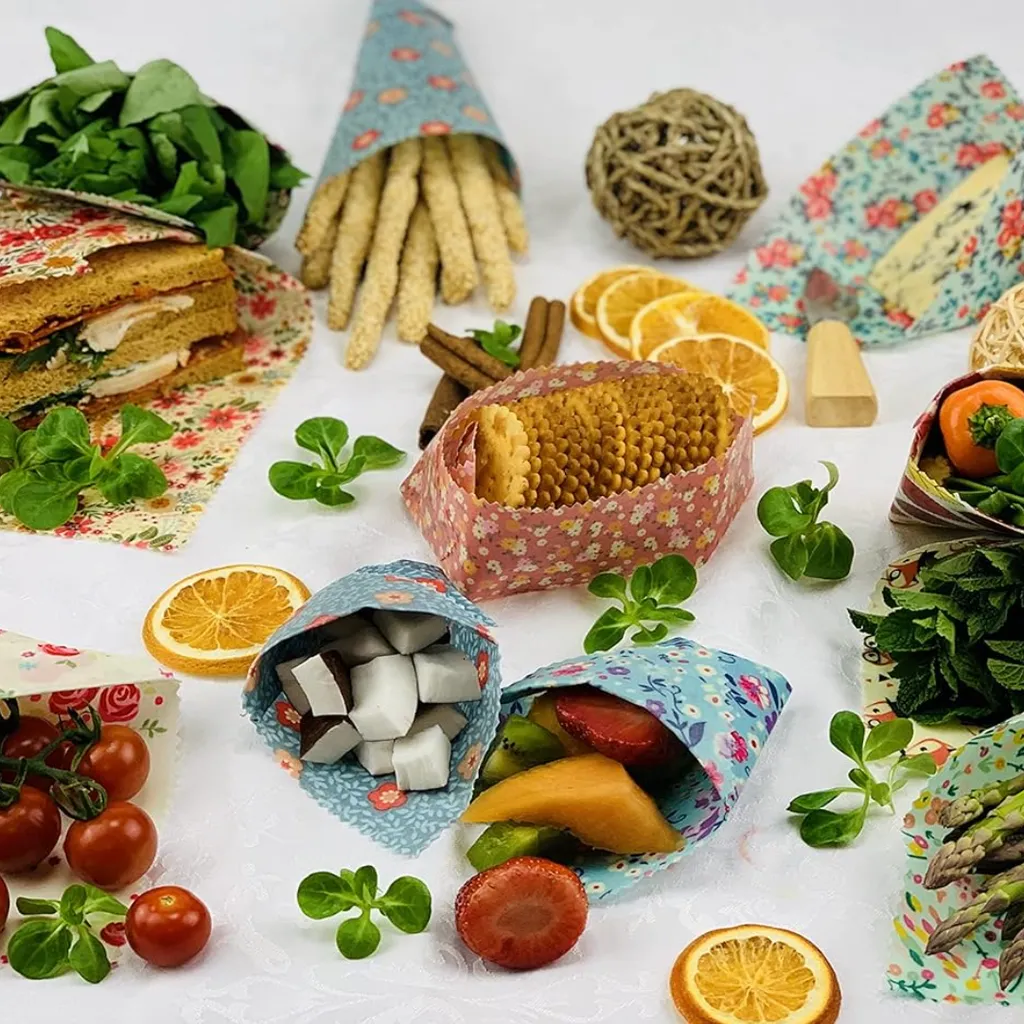
Buy The Little Foxy Workshop beeswax wraps from Amazon, £12.95 for five
Try not to be tempted by special offers or reduced items that aren’t on your list, as these are the type of items that often go to waste. If you do have unused fresh food left over, freeze what you don’t need or wrap it up using eco-friendly beeswax wraps and pop it in the fridge to be eaten the next day.
Replace your boiler with low carbon heating
The use of oil and gas heating systems and hot water in our homes accounts for around 15 per cent of the UK’s greenhouse gas emissions, but there are ways to reduce your carbon footprint when it comes to heating your home.
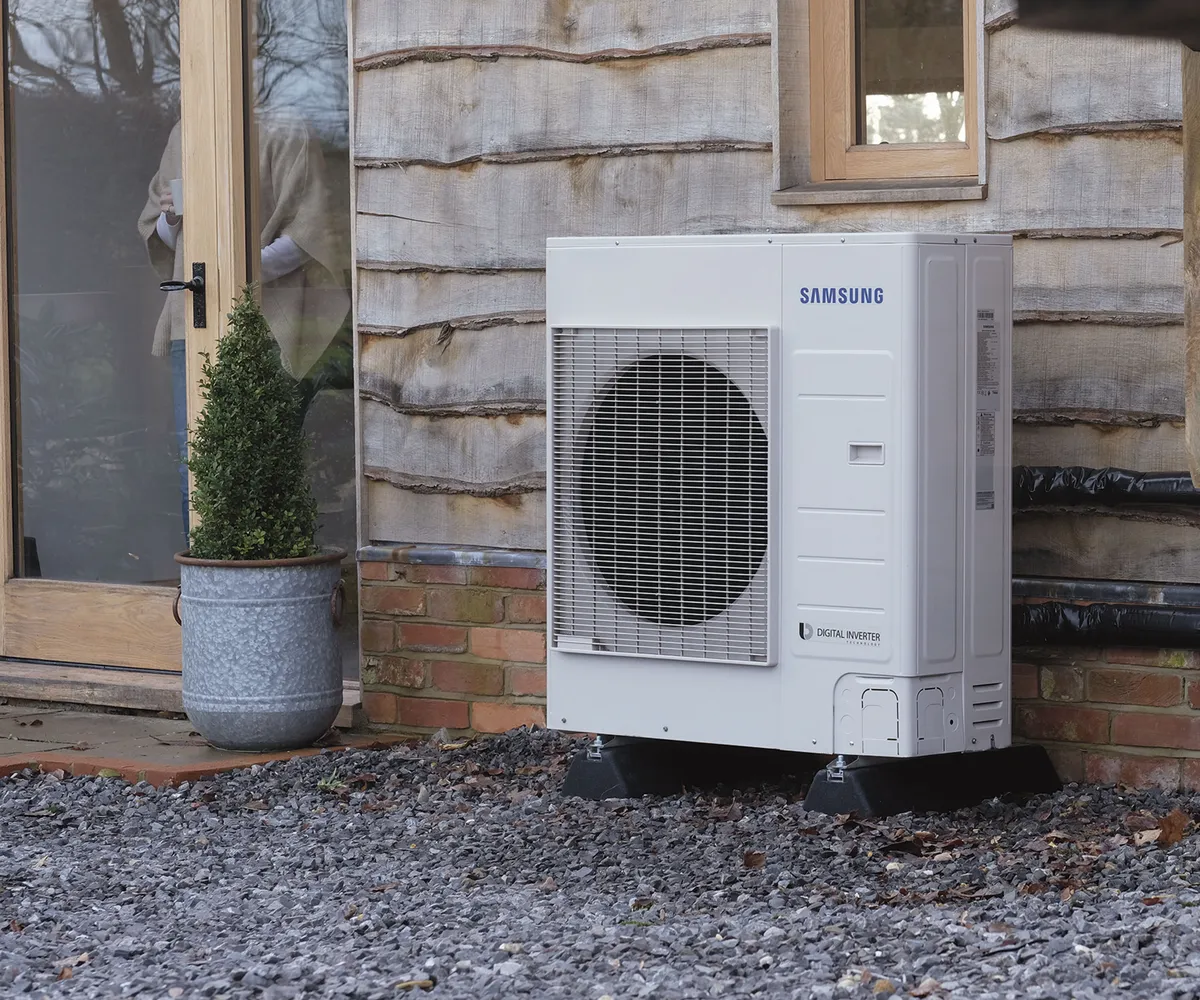
If your boiler is over 10 years old, you could save up to 50 per cent on your heating costs by switching to a renewable heating source, such as air source heat pumps. Heat pumps are essentially an alternative to boilers and run off electricity (as opposed to gas) to heat your home and water. It’s also worth noting that they don’t produce carbon emissions while operating, unlike gas boilers.
Opt for energy-efficient glazing
If you want to increase your home’s energy efficiency, improve your lifestyle, save on energy bills and help the environment, installing energy-efficient windows is a must. Up to 24 per cent of heat energy can escape from old, draughty glazing. If your double or single glazing is more than 20 years old in parts of your home, it is also unlikely to be as energy-efficient as modern glazing.
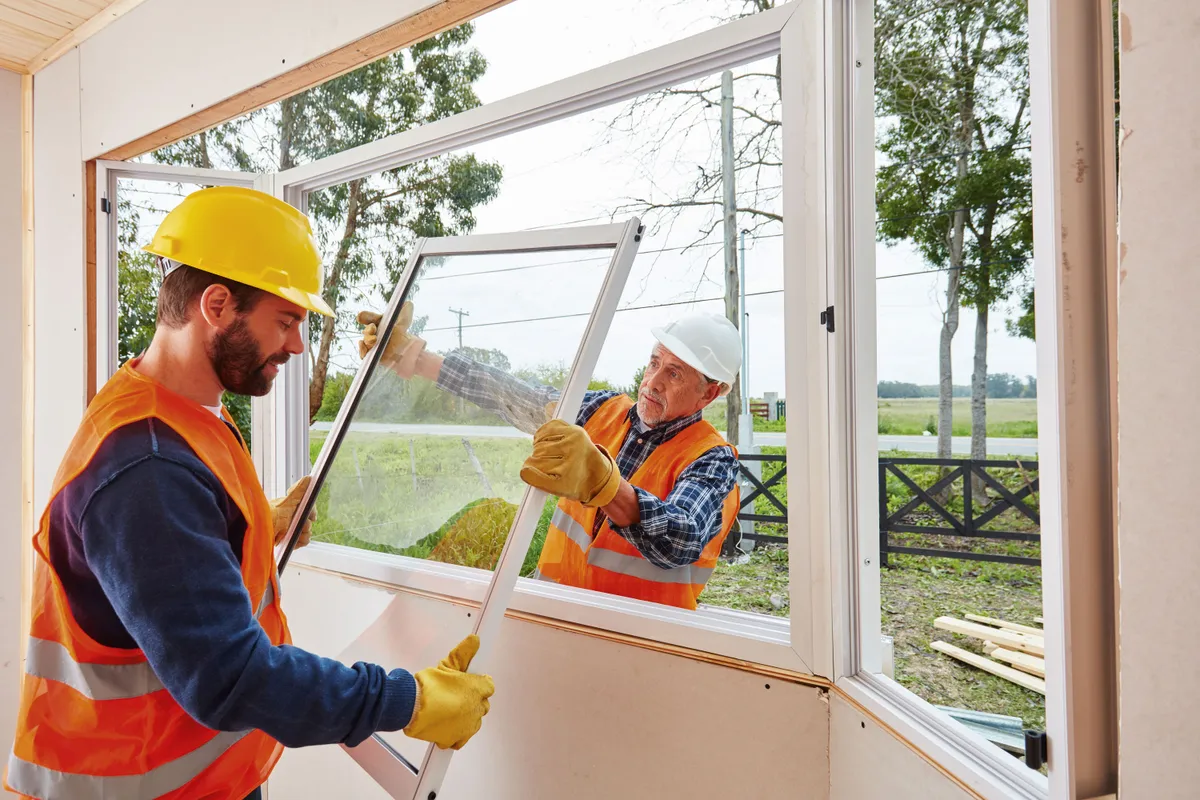
In the last 20 years advanced technological innovation has seen energy-efficient glazing significantly develop, from specialist glass types through to improved double and triple glazed windows and doors, which can save over 50 per cent in fuel bills. For more information on energy efficient glazing and other home improvements to reduce your environmental footprint, visit MyGlazing.com.
Compost your leftovers
Don’t let leftover food go to waste – compost it instead. In order to rot down well and produce top quality compost, your heap needs a mix of woody, carbon-rich ‘brown’ waste (such as prunings, wood chips, paper or cardboard), and softer, nitrogen-rich ‘green’ materials (including leafy plant matter, grass clippings and kitchen vegetable waste). Woody material decomposes faster if shredded, as will tougher, evergreen leaves.
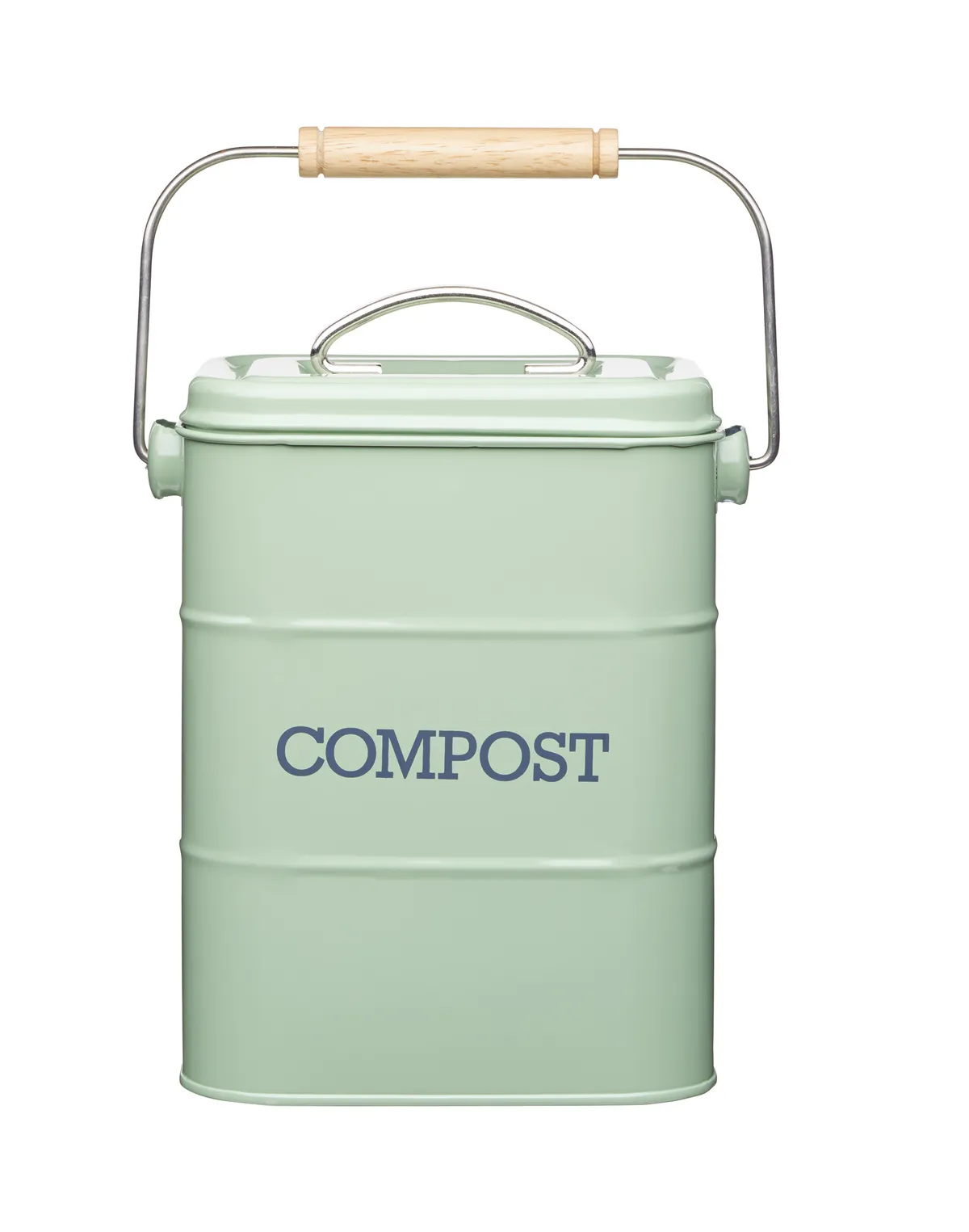
Small quantities of autumn leaves can be mixed into heaps, but larger quantities should be rotted down over two years to make leaf-mould. There are lots of compost bins on the market, or you could make your own using old pallets. If your garden is small and there’s nowhere to hide your compost bin away, then choose a design that’s easy on the eye and made from natural materials so it blends seamlessly with your flowerbeds. If you don’t have room for a compost bin, you can still use your council’s kerbside food waste recycling scheme to ensure your leftovers don’t go to waste - check out these cute food caddies for an aesthetic solution!
Insulate your home
Just by insulating your loft to industry standards you can save up to £200 a year on your energy bills. If you’re planning to extend your home by adding another bedroom in the loft, roof insulation is a must – and is another popular route to make your home more energy-efficient.
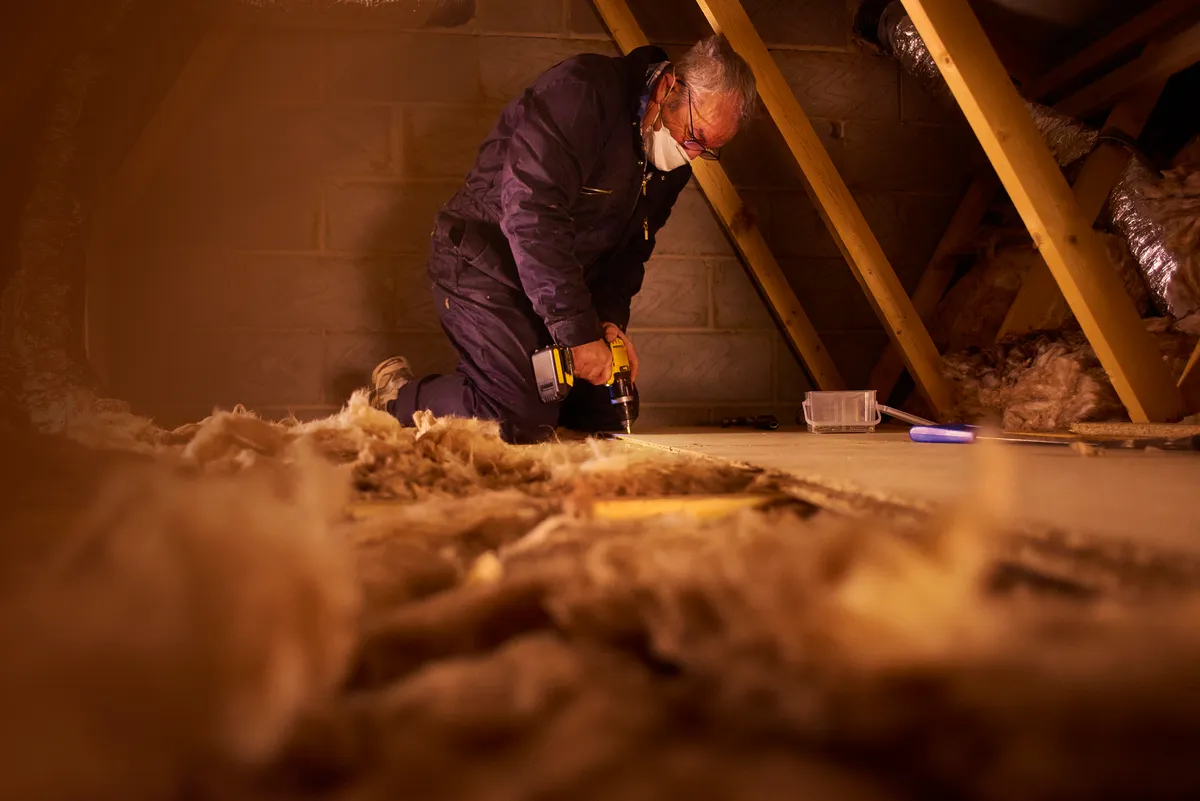
Insulation essentially reduces the exchange of heat (both gain and loss) through the surfaces of your property. From cavity wall insulation to loft insulation or underfloor insulation, there is a range of options available to ensure your home is cool in the summer and warm in the winter, reducing your carbon footprint and of course your energy bills all year round.
Make recycling a doddle
Right now 55 per cent of the UK’s plastic waste still ends up in landfill sites, where it will take hundreds, or even thousands, of years to degrade. Most local councils offer household recycling schemes with the weekly rubbish collection for items such as plastic, glass, metal, paper and cardboard.
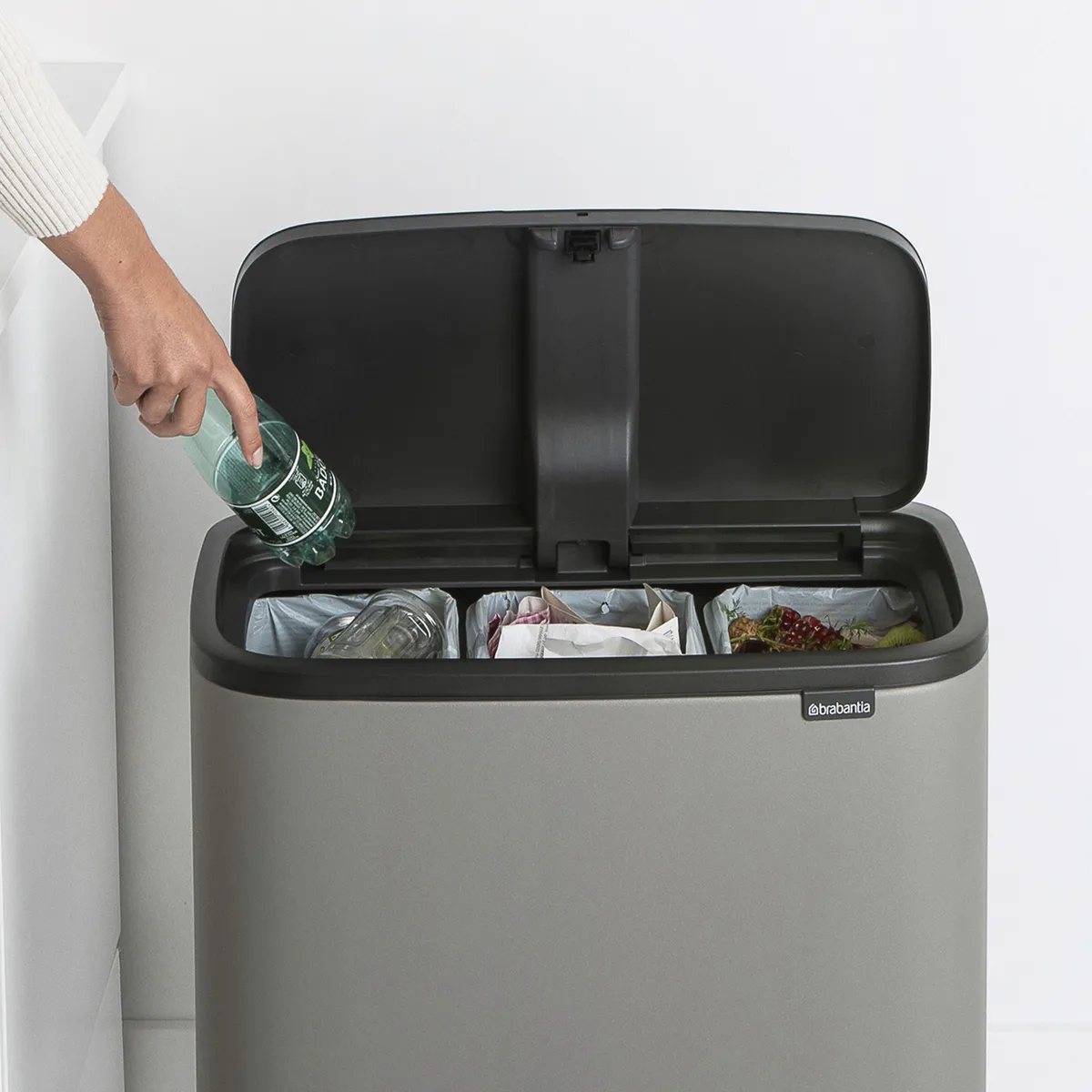
To make sorting your waste a doddle, opt for a kitchen bin with separate compartments for recyclables.
For items such as electrical goods or furniture, take a trip to the local recycling centre where you can dispose of larger items without them ending up in landfill. If you have any unneeded household items that are too good to throw away, try selling them or donate them to your local charity shop to help a good cause.
Upgrade your doors
Upgrading your older doors for newer, more energy-efficient alternatives can really reduce your energy consumption and bills. When it comes to exterior doors, there are various factors that could be impacting their environmental friendliness. For instance, do your doors have modern glazing in them? Are they single, double or triple glazed? What materials are the doors made from: wood, uPVC, steel, aluminium or composite? Are your door frames sealed correctly and draught-free?
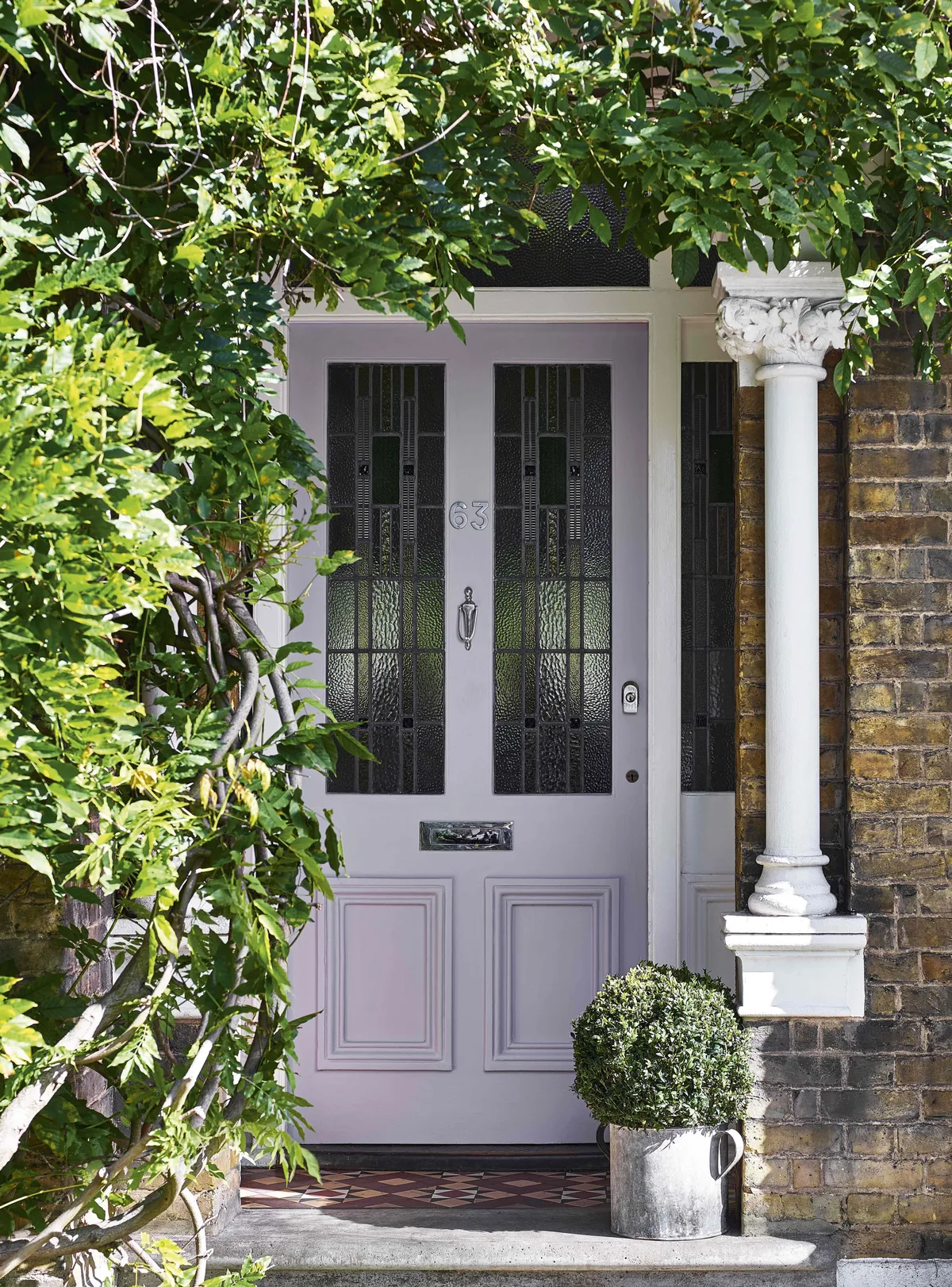
All of these factors have a significant effect on your household’s carbon footprint. Homes can lose almost a quarter of their heat through inefficient windows and external doors, so installing high thermal performance doors can be a great way to reduce heat loss and keep the warmth in your home. By installing energy-efficient doors you can also improve your household’s environmental footprint and reduce your heating bills.
Choose natural materials
The current trends for houseplants and boho style have seen a new vogue for homewares made from natural materials, which is good for the planet and good for our mental health, as the calming elements of nature are a welcome respite to the senses in the chaotic world we live in at the moment.

Decorating with natural materials, such as FSC-certified wood and linen, establishes a tranquil and relaxing atmosphere when you combine it with natural lighting, greenery and a calming colour palette. Choose breathable and sustainable materials, such as organic cotton bedding or furniture made from bamboo or mango wood, which give your home a cosy yet practical feel. For more, explore our 8 tips for building an eco-friendly home.
Consider a second-hand kitchen
If you’re thinking of replacing your kitchen, then think about buying a used or ex-display one instead of buying new. The Used Kitchen Company has hundreds of used and ex-display kitchens for sale at any one time. Its ever-expanding collection includes kitchens from designer brands such as Bulthaup and Poggenpohl.
Many of its used kitchens are only a couple of years old and most of its ex-display kitchens have never been used at all, so feel like brand-new. These kitchens sell for less than half of their retail value and can often be added to and reconfigured to fit your kitchen space.

The Used Kitchen Company (UKC) has built a reputation for the level of care it takes in recycling kitchens and for ensuring that the process of buying a kitchen is ‘no more hassle than buying a phone’. Its team of experts works closely with a number of specialist fitters to ensure that everyone receives a premier service, from start to finish. Those embarking on kitchen renovations have also benefited from selling their old kitchens and getting some cash to put towards their home improvements.
The UKC has also successfully launched ‘Something else for sale’ on its website, where you can find non-kitchen high-end and ex-display items including bedrooms, bathrooms, dining and living room furniture as well as lighting.
Feeling inspired? Why not transform your garden, too, with our 10 home hacks for your eco-garden and guide to creating an eco-friendly garden in five easy steps? Plus, take your green credentials on the go with our pick of the best eco-friendly travel accessories.
Feature Anna-Lisa De’Ath.
